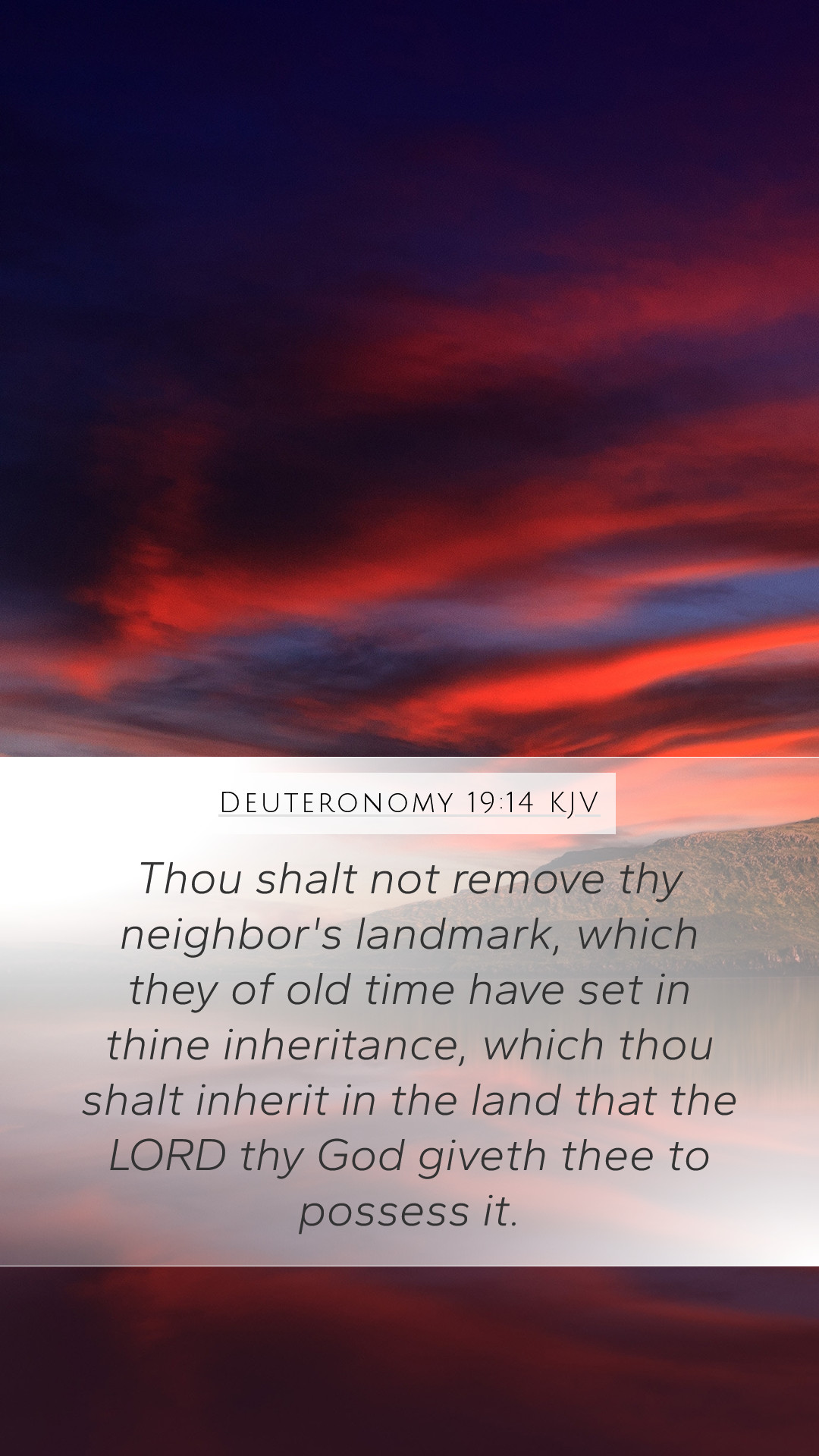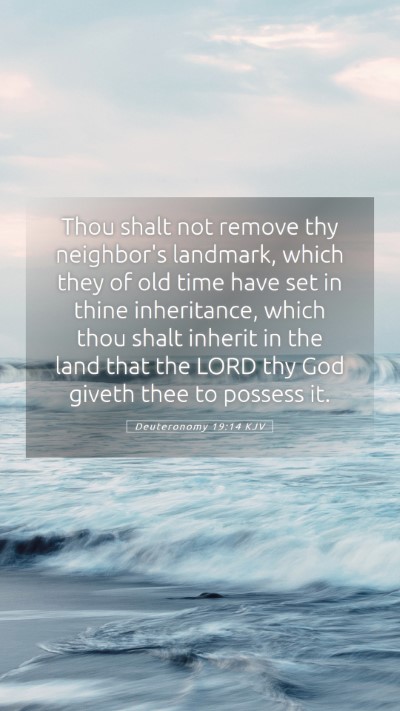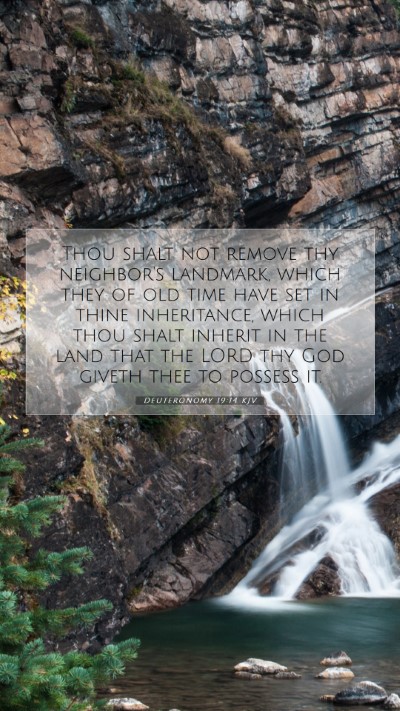Understanding Deuteronomy 19:14: A Comprehensive Commentary
Deuteronomy 19:14 states: "Thou shalt not remove thy neighbour's landmark, which they of old time have set in thine inheritance, which thou shalt inherit in the land that the LORD thy God giveth thee to possess it." This verse emphasizes the importance of respect for boundaries and property rights, reflecting broader principles in biblical law.
Context and Background
This verse is situated within a portion of Deuteronomy that outlines various laws related to justice and societal order. It aims to establish a framework for ethical behavior among the Israelites, particularly concerning property disputes and community relations.
- Historical Context: Property boundaries in ancient Israel were not just physical demarcations; they were steeped in cultural significance and divine promise.
- Community Responsibility: The injunction against moving landmarks reflects a commitment to fair practices and mutual respect in the community.
- Divine Inheritance: The mention of "the land that the LORD thy God giveth thee" underscores the belief that land ownership is ultimately a divine legacy.
Biblical Interpretation Insights
Commentators such as Matthew Henry and Albert Barnes expound on the spiritual implications of this verse. Their analyses highlight the following key points:
- Integrity in Transactions: Matthew Henry emphasizes that moving a neighbor’s landmark disrupts the principle of honesty and can lead to greater societal chaos.
- Divine Justice: Barnes notes that God, who oversees the administration of fairness, punishes those who defy His commandments regarding property.
- Preservation of Rights: Adam Clarke’s commentary elaborates on the need for stability and security within the community, suggesting that respecting boundaries prevents conflict.
Application to Modern Life
The principle encapsulated in this verse holds valuable insights for modern-day living. It showcases the significance of respecting personal and communal boundaries, thereby fostering harmony in social relations. The following applications can be drawn:
- Ethical Living: In our daily interactions, we should strive to uphold ethical standards and respect others' rights.
- Community Integrity: By promoting integrity, we contribute positively to our communities, discouraging selfish actions that may harm others.
- Awareness of Rights: Understanding property rights and the legal ramifications of boundary disputes fosters a sense of responsibility among individuals.
Related Cross-References
- Proverbs 22:28 - "Remove not the ancient landmark which thy fathers have set."
- Job 24:2 - "Some remove the landmarks; they violently take away flocks, and feed thereof."
- Micah 2:2 - "And they covet fields, and take them by violence, and houses, and take them away; so they oppress a man and his house, even a man and his heritage."
Conclusion
Deuteronomy 19:14 stands as a pivotal verse that speaks to the integrity and justice expected in relationships and societal structures. By acknowledging the boundaries set by God and respecting our neighbors, we can foster a spirit of cooperation and peace in our communities. This verse not only addresses property rights but also reflects a deeper understanding of communal ethics that is vital even today.
In exploring bible verse meanings and bible verse interpretations, this verse serves as a reminder of the importance of careful scripture analysis and biblical exegesis. As you seek to understand scripture, consider engaging with bible study groups and utilizing various bible study tools to delve deeper. The peaceful coexistence of individuals hinges on our commitment to uphold the teachings of scripture in our lives.


